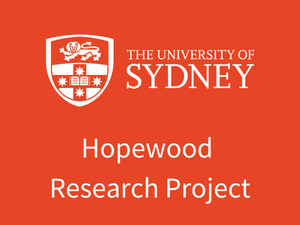Introducing Hopewood’s natural ‘detox’ philosophy

What is a ‘detox’?
The human body has an incredible capacity to heal itself and fasting – going without food – can help to flush out and eliminate poisons and toxins, balance the body and improve overall health and wellbeing. Juice or water therapy, also called ‘cleansing’ or ‘detoxing’ not only helps to improve health conditions, it boosts the nervous system. It also cleanses the liver which in turn cleans the blood and can slow down, or possibly reverse, the progress of our ageing process by lowering free radical damage.
Juice or water fasting can help you feel revitalised and motivated to improve other facets of your lifestyle, like your exercise regime. A juice diet or a restricted diet is not strictly fasting, however they can both achieve similar benefits and in some cases may be recommended in preference to fasting.
Why fast?
Just about everybody benefits from fasting. Even living a relatively healthy lifestyle doesn’t protect the body from all toxic substances. Eating habits, pollution and stress all increase toxic deposits throughout the body, which in time can lead to serious health issues.
Over more than 55 years of supervising juice and water therapy, we have noted significant improvements in health conditions, such as arthritis, hypertension (high blood pressure), poor digestion, poor circulation, skin eruptions, chronic back pain, fatigue, headaches, improved immunity, eczema, chest congestion, allergies, ovarian cysts.
Fasting can also be a great opportunity to kick-start a lifestyle change, or as a means of giving up smoking.
Other benefits include improved energy levels, less respiratory congestion and clearer eyes. The main benefit, however, is a more functional liver process.
The liver is challenged day-to-day by alcohol, viruses, prescription and social drugs, pesticides, pollutants and poor eating habits. The liver is the seat of detoxification in the body, capable of deep cleansing and regeneration given the right environment, such as committing to a juice or water fast.
What do toxic substances do?
When the body is exhausted, continually digesting food, or overrun with emotion and stress, we are more vulnerable to toxic substances clogging our system. Toxins ultimately decrease the flow of vital nutrients causing irritation and damage to cells, fatigue, inflammation, and potentially chronic pain or disease.
Weight loss and fasting
Fasting is not a solution for obesity. The fat you lose during a fast can easily be replenished if you do not resume a good diet and regular physical activity. Repeated fasts or repeated crash diets are not advised because they may have the lasting effect of slowing your metabolism. In this regard it is better to have a longer fast less often then frequent short fasts.
Three basic changes that occur during fasting
During a fast the body needs to spare the breakdown of muscle and enzymes. As the body undergoes a series of hormonal and metabolic changes, energy is drawn from adipose (fat) tissue allowing the body to conserve its body mass. Typically divided into 3 bio-chemical stages, the body often undergoes the following process during a fast:
- Glucose – approximately the first 12 hours. Initially this comes from your last meal then from glycogen stores in the liver (glycogenolysis).
- Amino acids (gluconeogenesis) provide a fuel source particularly from the 10th to the 40th hour. They come from free amino acids in the circulation, digestive tract, liver and traces from muscle protein. These amino acids are converted in the liver to glucose for energy which is also vital for brain function.
- Fats – from approximately the 2nd day onward (but particularly from the 3rd day) adipose tissue begins to be broken down and fats used directly while their by-products, ketones, are both becoming the primary source of fuel.
Some symptoms experienced during a fast
It is common to experience side-effects due to the withdrawal of caffeine, alcohol, sugar or cigarettes. You may experience symptoms such as headaches, muscle aches, backaches, and nausea. It is also not unusual to experience temporary symptoms associated with any previous or existing health problems or injuries. These generally subside over a day or so and are usually followed by an improvement.
Length of a fast
Because there are many circumstances that determine who can and how long a fast can continue, the length of a fast should be determined on an individual basis. Generally an acute disease such as a cold require only a short fast while chronic diseases, such as arthritis, require a longer fast.
Breaking a fast
Juices are the best way to break a fast. Fruits, then salad vegetables can be gradually introduced and followed with cooked vegetables and then more substantial foods. Rest is extremely important throughout this process. When discontinuing the fast, physical activity should only be resumed gradually. Care must be taken at this stage so the full benefits of a fast can be realised.
If you want to undertake a fast or cleanse, you should consult a naturopath, who can support you during the entire detox process. They can also help you to establish healthy eating practices, and an appropriate exercise regime, when you have completed your detox process. You should ALWAYS have someone to care for you during a fast.









